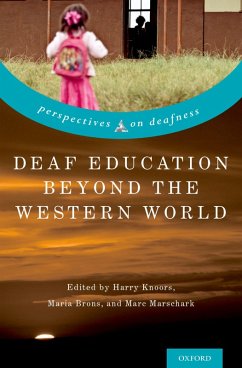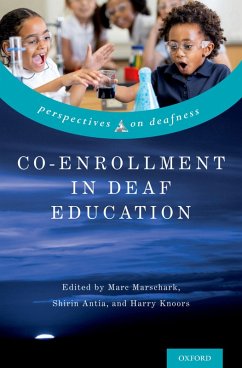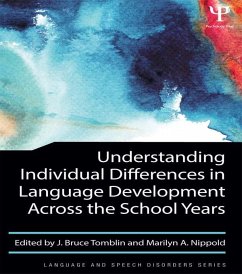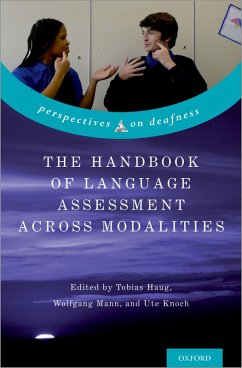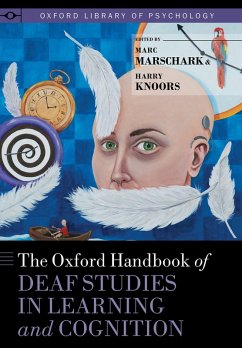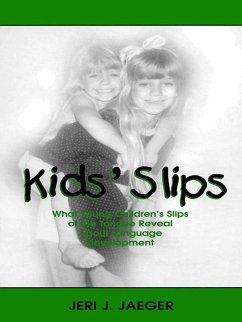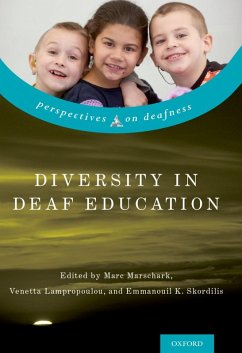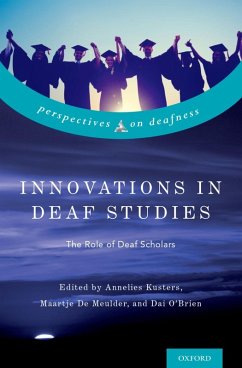
The Oxford Handbook of Deaf Studies in Learning and Cognition (eBook, ePUB)
Versandkostenfrei!
Sofort per Download lieferbar
73,95 €
inkl. MwSt.
Weitere Ausgaben:

PAYBACK Punkte
37 °P sammeln!
In recent years, the intersection of cognitive psychology, developmental psychology, and neuroscience with regard to deaf individuals has received increasing attention from a variety of academic and educational audiences. Both research and pedagogy have addressed questions about whether deaf children learn in the same ways that hearing children learn, how signed languages and spoken languages might affect different aspects of cognition and cognitive development, and the ways in which hearing loss influences how the brain processes and retains information. There are now a number of preliminary ...
In recent years, the intersection of cognitive psychology, developmental psychology, and neuroscience with regard to deaf individuals has received increasing attention from a variety of academic and educational audiences. Both research and pedagogy have addressed questions about whether deaf children learn in the same ways that hearing children learn, how signed languages and spoken languages might affect different aspects of cognition and cognitive development, and the ways in which hearing loss influences how the brain processes and retains information. There are now a number of preliminary answers to these questions, but there has been no single forum in which research into learning and cognition is brought together. The Oxford Handbook of Deaf Studies in Learning and Cognition aims to provide this shared forum, focusing exclusively on learning, cognition, and cognitive development from theoretical, psychological, biological, linguistic, social-emotional, and educational perspectives. Each chapter includes state-of-the-art research conducted and reviewed by international experts in the area. Drawing this research together, this volume allows for a synergy of ideas that possesses the potential to move research, theory, and practice forward.
Dieser Download kann aus rechtlichen Gründen nur mit Rechnungsadresse in A, B, BG, CY, CZ, D, DK, EW, E, FIN, F, GR, HR, H, IRL, I, LT, L, LR, M, NL, PL, P, R, S, SLO, SK ausgeliefert werden.




